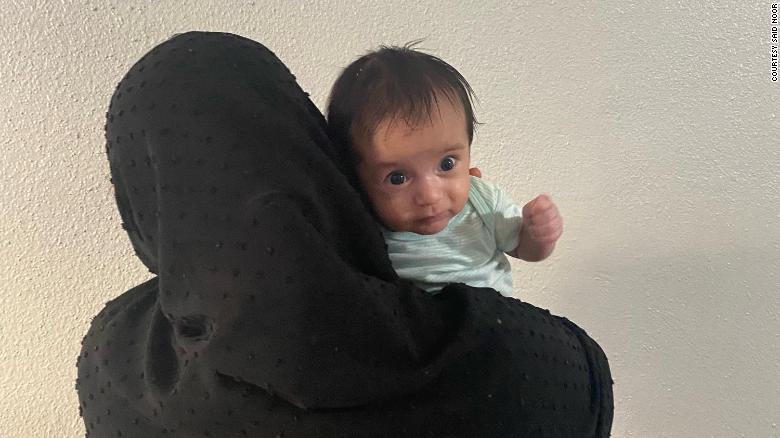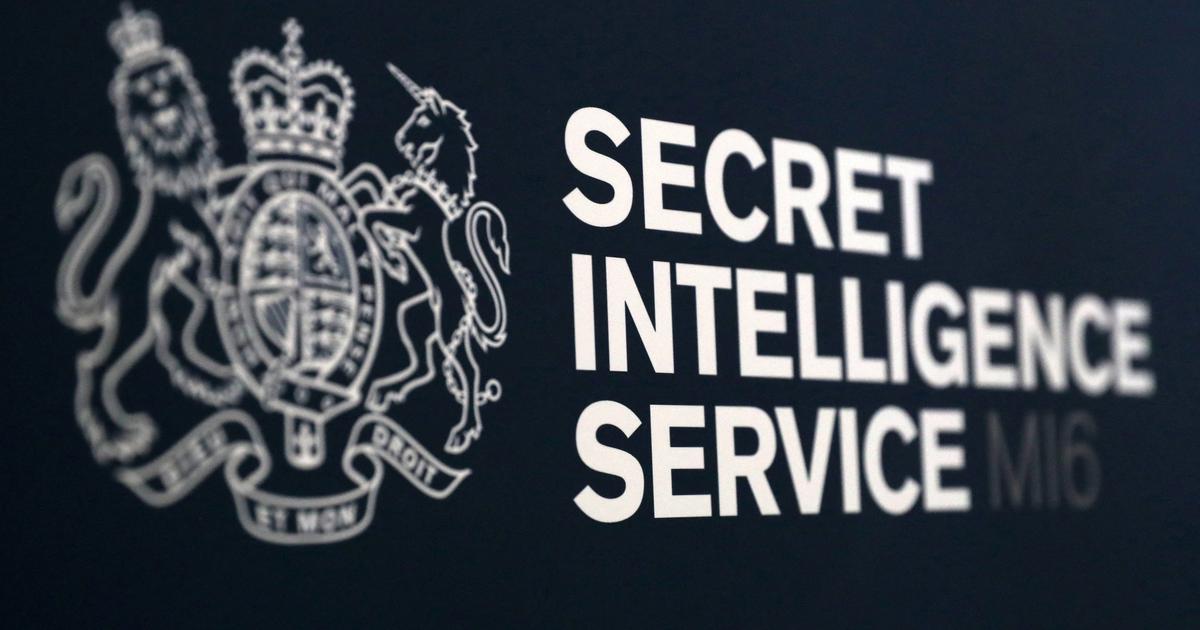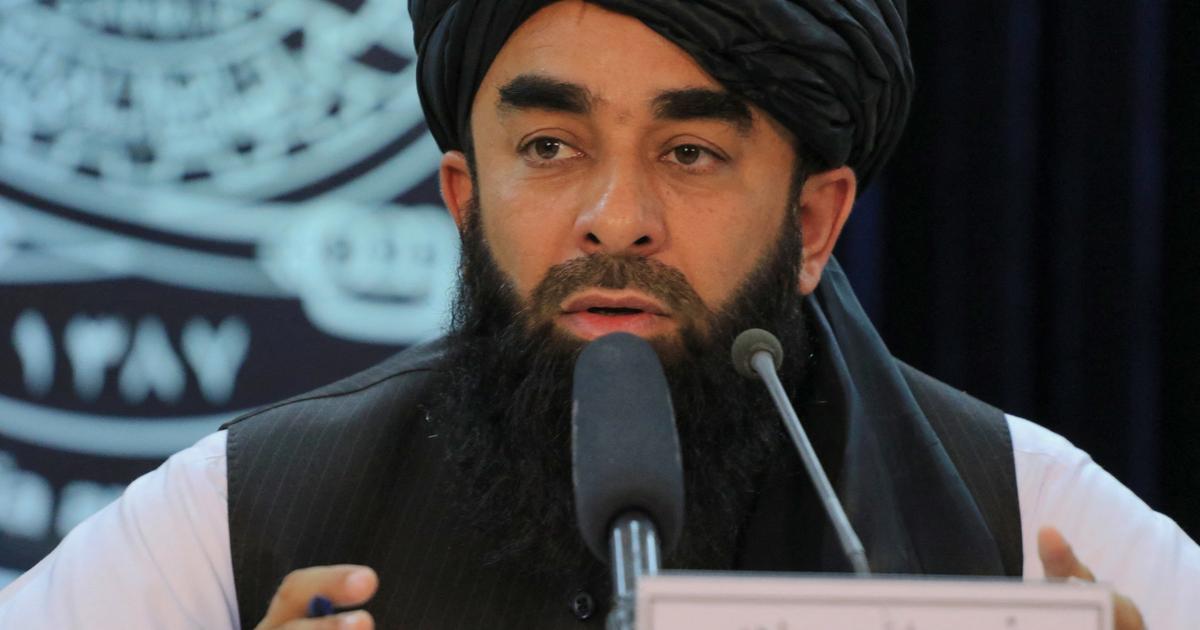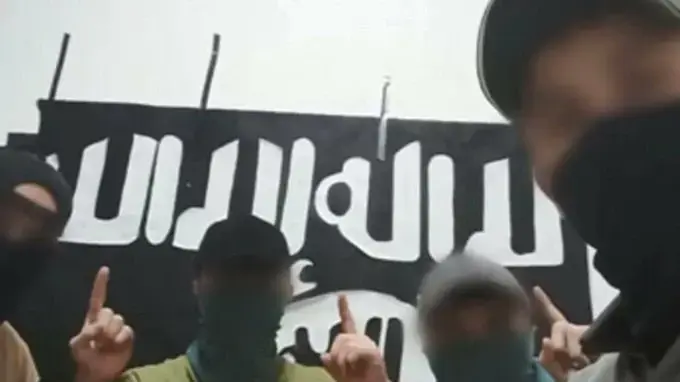Desperate families sell their daughters to survive in Afghanistan 5:45
(CNN) --
It was August 26 in Kabul, just after dark, and Nasema was holding on tight to two of the most important things in her life, not knowing that she would lose one of them before the sun fully set. .
In one hand he held the key to escaping from Afghanistan: travel documents.
In the other arm, her 2-year-old daughter, whom everyone in the family affectionately calls "the girl."
Lal Mohammad, Nasema's brother, followed behind her with their four other children, ages 6 to 11.
They hoped, without any guarantee, to catch an evacuation flight that day, to make the journey that thousands of Afghans have now made to reach the United States, circumnavigating half the world after the abrupt and unceremonious end of a 20-year war.
1,450 Afghan children were evacuated to the United States without their parents.
Some "will never be reunited with their family"
They were making their way through the mass of people descending on the perimeter of Hamid Karzai International Airport, trying to escape before the last US plane left, when a suicide bomber detonated his vest at Abbey Gate killing 13 US service members. and about 170 Afghans.
Nasema was nearby and immediately fell to the ground.
advertising
"The explosion was very strong and shocked the entire area around it," he recalled.
"I saw body parts, blood, corpses, debris, I heard the loudest screams of people asking for help."
"I remember the canal, the dirty water," he told CNN, speaking on the condition that only his first name be used.
"I didn't want to get too close to the edge because I saw a lot of people falling down."
Nasema tried to get her bearings.
The dizzying confusion and shock of the initial explosion turned into intense panic.
She and her family ran away, Lal is now carrying the child.
"When we got to safety, I hurriedly took off his shirt," Nasema said, "looking for wounds and blood on his body."
She was fine. Thank God, Nasema thought.
The documents, however, had disappeared.
Nasema had been knocked to the ground several times in the terrified crowd.
Now, as they fled, she clutched her stomach.
Nasema was more than seven months pregnant.
She looked for a kick, a movement, something.
But she didn't feel anything.
houston
Nasema's brother, Said Noor, has lived in the US since 2014 after obtaining his special immigrant visa.
In Afghanistan, he worked alongside US forces before immigrating to the United States, becoming a citizen, and joining the US Army in 2016 as an interpreter, where he later deployed to Afghanistan.
Noor, who is single, left the military with an honorable discharge in 2020, settled in Houston, and was taking online criminal justice classes from the University of Upper Iowa under the GI Bill.
Two months later he made a trip back to Afghanistan, going again in July 2021 to try to get his family out, after the Biden administration announced official withdrawal plans.
Both times she returned to Houston alone.
So Noor turned to the media, and her story caught the attention of Rep. Seth Moulton, a Massachusetts Democrat who is a former Marine and Iraq War veteran.
Parwana's rescue: a 9-year-old girl sold into child marriage in Afghanistan is taken to safety
The US government finally approved his family's visas, but only just before Kabul collapsed, making a "normal" evacuation impossible.
In August, when Moulton made a controversial trip to Kabul with another veteran, Republican Rep. Peter Meijer of Michigan and his director of constituent services, Neesha Suarez, were trying to get Noor's family out of Afghanistan two days before the attack. bombed at Abbey Gate.
"It didn't work out until my trip to Kabul, where I met this Navy captain," Moulton told CNN.
The congressman said the officer had told him he could help Moulton identify Afghans outside of Kabul.
By the day of the attack, Suarez had secured seats for 17 Afghans on a bus to the airport.
But that rescue plan, which she was coordinating with the Department of Defense, evaporated in the explosion.
"For the next 24 hours, all I heard was that we could no longer get people to the airport," Suarez wrote in a memo at the time.
"They told me to discourage evacuees from going there as it would only make things worse from a security standpoint."
Then an opportunity arose.
Afghan girl Parwana rescued from child marriage 9:24
Last chance, not guaranteed
The next day, Noor was in Houston, keeping Kabul time so she could talk to her family in Afghanistan 10 1/2 hours ahead of time.
She woke up to a text message and a pinned location from Suarez.
"Bring them here NOW," he texted.
"It could be the last chance. Not guaranteed."
The pin was a gas station 15 minutes from the airport.
Moulton's Marine contact had arrived…perhaps.
It depended on Suarez arguing with six groups, including Noor's family, in time to get to the rendezvous point at the gas station and then through a back gate at the airport.
"I'm at the door," Suarez the Marine had texted in Kabul.
“I'm going to send a guy by the name of "Omar".
He's going to ask who knows 'Tom Brady'."
When Suarez read the instructions, he laughed out loud at the reference to Massachusetts.
He told his contacts to reply, "Yes, I do."
Meanwhile, each family had to figure out how to get to the gas station.
Noor began to plan: they would need two taxis, at least.
It would take them about 30 minutes to get there from their hideout in the city, maybe less.
It would be close.
He cursed the fact that he wasn't there to make it happen.
kabul at night
Nasema had regrouped with her family in a safe place away from the airport after the suicide bombing thwarted her initial attempts to escape.
Noor contacted the family to tell them that they only had half an hour to get to the gas station.
A bus would be waiting for them.
"It could be your last chance," he told them, reiterating Suarez's warning.
Nasema and her family, including her sister, her three brothers, her mother, her young son and her four other children, waited for taxis in the dark.
Nasema's children were happy as they headed to the gas station, but she was anxious: "I was thinking maybe it's time for us to die, or take the flights out of the country."
They were greeted by bearded men, according to Lal.
The men were wearing camouflage uniforms, but different from those they had seen American service members wear as they dispatched people through the airport.
American Special Forces, Lal thought, though he wasn't sure, along with Afghan Special Forces.
Baby lost in Afghanistan airport chaos is found and returned to his family
At some point, Lal said, the Afghan soldiers who were interpreting for the Americans left the gas station and communication was broken.
So the reasons for what happened next remain unclear.
Nasema approached the Americans to conduct security and identification checks.
It became clear that the Americans did not expect her to bring five children with her.
His missing documents were also a problem, but three letters he carried from Noor's military friends gave him some credibility with US forces.
The letters included the names and dates of birth of each of Noor's immediate family members.
However, they did not include the names of Nasema's children.
"I was trying to point the finger at my children, but I had no way of communicating with them while I was crying," she said.
Her little boy clung to her and her other children began to cry.
She said that the Americans moved away to talk to each other and, through her gestures, told her that she could bring her young child but not the other children.
"They probably have a kid his age," she said, "I'm not sure why the others couldn't come."
Nasema contacted her husband, who was in Dubai for work, and asked what she should do.
He encouraged her to get on the bus with the 2-year-old and assured her that she would soon be able to take the other children to the United States.
As she looked at her children and held her little one, she made the impossible decision.
While remembering the moment, Nasema cries.
Every day she talks on the phone with her children who are left behind, and who are being cared for by a relative.
Noor says she's doing her best to get the other kids out.
"Kids love their mom," Noor said.
"They say, 'When are we going to be there with you to join you?'"
Afghan women return to universities, but with conditions 0:51
A cold night in Wisconsin
Nasema cried all the way to Qatar, the first stop over the course of the two weeks it would take her to reach the United States.
The next stop was Spain, where they received ill-fitting clothing at a military base.
Their penultimate stop: Fort McCoy, Wisconsin, where they would spend nearly a month and a half.
On her first night at the US Army base, Nasema was freezing.
The drop in temperature in Wisconsin was a shock compared to the August weather in Kabul.
The group tent had a heater, but the instructions were in English.
Nasema wrapped in blankets on a cot, grateful to be in America but missing her children.
The next day, one of the Afghans brought a service member to turn on the heat.
Nasema's back ached.
She went to the doctor on duty, who checked her out, told her that her baby was fine, and gave her medicine for her back.
His mood at Fort McCoy was a combination of constant anxiety and crushing boredom.
Resettlement was uncertain for Nasema.
Rumors were flying around the camp that they might be relocated to the area outside the base.
"The information we needed was not there and we kept asking people, but there was no clear answer of what we needed to do," he said.
Noor knew everything about visas and immigration from her own experience.
He assured his family that he would come looking for them, but that they should wait until his prosecution was complete.
After six weeks, Noor's family joined the nearly 5,000 Afghans who had been resettled from Fort McCoy in 46 states as of December, according to a State Department spokesman.
In October, Noor drove the 1,200 miles to Fort McCoy to pick up his family.
Afghanistan: Alert about violence against women 0:38
'Beyond the crisis' in Houston
"Crisis is a permanent state of what we do," said Dario Lipovac, director of refugee resettlement for YMCA International Services of the Greater Houston Area, "but the last two months, maybe three months, have been beyond the crisis".
The agency typically processes a small number of mostly Syrian, Congolese, Guatemalan and Cuban people seeking refuge in the United States.
But in November alone, the organization sent 481 Afghans to Houston, Lipovac said, twice as many as in the past two years combined.
With every family comes the need for mattresses, housing, clothing, toiletries, childcare, furniture, rugs, cell phones, laptops, blankets, assistance with school registration, and medical care.
It's not uncommon for Lipovac to be up at 3:00 am organizing client information.
Taliban ban long-distance travel for unaccompanied women in Afghanistan
"You have to be crazy to do this to yourself," he said.
Lipovac was also a refugee.
In the 1990s, he escaped the Balkan conflict and now helps others through the tumultuous experience of leaving their countries and resettling in the United States.
The YMCA and three other Houston resettlement groups have raised millions to support Afghans moving to their city.
In December, Houston resettlement leaders said they were absorbing much of the initial costs and that the federal funds would be repaid later.
The rush to raise funds coincided with an influx of Afghans pouring into the city as local groups faced the challenge of facilitating both.
As of Tuesday, more than 68,000 Afghan evacuees had been resettled in the US, according to the Department of Homeland Security, and about 7,300 remained on military bases.
By the end of the US military base's resettlement, the Houston agencies said they had received 6,000 Afghan refugees, and Lipovac estimates the YMCA had received 1,500, including Noor's family.
Lipovac says Noor's family is lucky: They have him, someone in the United States to guide them through the process and find them an apartment.
newest american
Nasema's mind was solely focused on her children as she entered this whole new world.
But she noticed the women walking alone in Houston and admired the tall buildings on the way to her new apartment.
"I wish we had this in Afghanistan," he said.
"I wish people would allow women to practice their freedom. I wish there would be no fights, no bomb blasts, no stress in our country."
Nasema holds her baby, Wisal, in Houston.
As he watched and wondered, he thought of his children, "I wish I had them by my side so we could see the city together."
Outside the apartment, Noor's 2-year-old niece walks barefoot across the patio as laundry hangs on the concrete.
She follows her uncle to the front of the house, where two slightly older Afghan boys are running around shooting bubbles with a toy gun.
She laughs as they chase each other back and forth.
There are three Afghan families on the street, including Nasema's, which is one of the main reasons Noor chose this neighborhood.
"They've been helpful. Some of them came here two years ago, a year ago and they're in a different situation," he said.
"But it's a traditional thing for Afghans, sometimes when they cook good food, they bring one or two dishes to my family. When my family cooks good food, we take it to the neighbours."
In the living room, Nasema's mother and sister pray over intricate rugs that cover the dark vinyl floor.
In one corner of the room, Nasema's new baby is propped up on small cushions on a large round table, sucking on a pacifier.
He was born at a healthy weight of 3 kilos and 28 grams and two weeks earlier than expected, just in time for the family's first Thanksgiving.
The baby's name is Wisal, to represent Nasema's hope for the future.
It is only roughly translated into English, with nuanced usage in Afghan poetry and literature.
But for Nasema, it means the union of separate people or objects, reunion, specifically.
It's what he prays for every day.
Afghanistanwomen in Afghanistan


/cloudfront-eu-central-1.images.arcpublishing.com/prisa/KA3LQ5ZEAFEQXOIZXJEEVDUZUQ.jpg)





